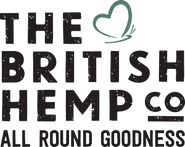What is Protein?
Protein is one of the three essential macronutrients (alongside carbohydrates and fats). It’s made up of amino acids, often described as the building blocks of life. Your body uses protein to build and repair tissues, create enzymes and hormones, support immune function, and more.
Without protein, your body cannot grow, heal, or function properly.
Why is Protein Important?
Protein plays a role in nearly every process in the body. Its main functions include:
Muscle growth and repair → Builds lean tissue and speeds recovery.
Hormone and enzyme production → Regulates vital functions like digestion, metabolism, and mood.
Immune system support → Produces antibodies to fight infections.
Energy source → Provides 4 kcal per gram (though not its main role).
👉 In short: protein fuels, protects, and rebuilds your body.
Amino Acids: The Building Blocks of Protein
Proteins are chains of 20 amino acids:
9 essential amino acids → Must come from food (the body can’t make them).
11 non-essential amino acids → Produced by the body.
Complete vs. Incomplete Proteins
Complete proteins contain all 9 essential amino acids (e.g., eggs, fish, soy, hemp).
Incomplete proteins are missing one or more essential amino acids (e.g., many plant sources).
Combining different plant proteins (like rice and beans) can provide all essential amino acids.
Best Sources of Protein
Animal-Based Proteins (complete):
Meat, poultry, fish
Eggs
Dairy products (milk, cheese, yogurt)
Plant-Based Proteins (many are incomplete, but powerful when combined):
Legumes: beans, lentils, chickpeas
Nuts & seeds: hemp, chia, sunflower, almonds
Whole grains: quinoa, oats, brown rice
Soy products: tofu, tempeh, edamame
👉 Tip: Hemp seeds and quinoa are among the few plant-based complete proteins.
How Much Protein Do You Need Daily?
Your protein needs depend on your age, weight, and activity level.
General guideline (RDA): 0.8 g protein per kg body weight (for healthy adults)
Athletes / active people: 1.2 – 2.0 g per kg body weight
Older adults: May benefit from higher intakes to maintain muscle mass
✅ Example: A 70 kg (154 lb) adult needs at least 56 g of protein per day (minimum).
Protein Quality and Supplements
Not all proteins are created equal. Quality depends on amino acid profile and digestibility.
High-quality proteins: eggs, whey, fish, soy, hemp
Supplements:
Whey protein → fast digesting, ideal post-workout
Casein protein → slow release, good before bed
Plant-based powders → pea, hemp, soy, rice
Collagen → supports skin and joints (not a complete protein)
Supplements are convenient but not necessary if your diet is balanced.
Protein and Health Benefits
Getting enough protein can:
✅ Build and repair muscle
✅ Help with weight management (keeps you full longer)
✅ Strengthen bones and tissues
✅ Support metabolism and immunity
⚠️ But too much protein (especially from processed meats) may increase risks for heart disease or kidney strain in some individuals. Balance is key.
Common Protein Myths Debunked
“More protein automatically means more muscle.” → You need resistance training too.
“Vegetarians and vegans can’t get enough protein.” → Plant-based diets can easily meet needs with variety.
“Protein powders are essential.” → They’re convenient, not mandatory.
Quick Protein Facts
1 g of protein = 4 calories
1 egg = ~6 g protein
100 g chicken breast = ~30 g protein
3 tbsp hemp seeds = ~10 g protein
1 cup cooked lentils = ~18 g protein
Final Thoughts
Protein is the foundation of good health. It builds, repairs, fuels, and protects your body. By eating a variety of protein-rich foods — whether from plants, animals, or both — you can support your health, fitness, and long-term well-being.
✨ Bottom line: Protein is your body’s construction material. Give it the right building blocks, and you’ll thrive.
